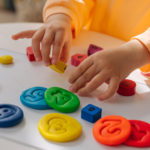These days, there is a huge focus from parents on their children’s social skills. We live in times where those social skills are just as important as academic achievements. And sometimes, building good social relationships helps us be more successful. Therefore, all parents try hard to put more effort into developing their child’s social skills. In this article, you will learn to do so depending on different age groups for children.
How to Develop Your Child’s Social Skills?
First of all, we should state that building social skills should begin from a very early age. It is never too soon to teach children to socialize and make friends. In addition, how those social skills are built affect a child’s personality and character development. Many studies show that children who are sociable can make friends. Thus, they are more confident and have great self-esteem.
Below, you will find tips and pieces of advice on how to develop your child’s social skills. We like to divide this into 2 groups: 3 years old and younger, and older than 3 years old. This will help make things easier for you and your child.
3 years old and younger
1| Find your child a group of friends.
Toddlers and babies cannot make their own friends yet. Therefore, it is the parents’ job to find a group of same-aged children for their kid to meet. You can do so through nursery, friends, family, or neighbors. Make sure to arrange constant and regular playdates so your kids can connect well with those other kids.
2| Eliminate separation anxiety.
Many toddlers are too afraid of being away from their mums. This attachment can backfire to your child’s social skills. Some toddlers stick to their mums’ side rather than playing with other kids. If your child does so, you should act quickly and eliminate their fear of separation. Take your toddler’s hand and introduce him or her to the rest of the group. Find a toy, game, or activity that your child will enjoy and start playing with them. Once they are engaged, take a step back gradually and let them interact with other kids on their own. The key here is to be visible for your kid. But not taking control of the situation or overshadowing them.
3| Reinforce sharing and friendship.
Most friendships at this age are built on sharing and playing together. Children cannot build friendships unless they share toys for example. Therefore, you must reinforce the concept of sharing for your children so they can make friends easily. How can you do so? First, make sure you share little things with your kids, like a candy bar or a pencil. Children mirror their parent’s behavior. And many experts believe that children who do not share often learn this from their parents. Second, you can use your child’s favorite cartoon characters to teach them about sharing. There are plenty of stories and books that teach children about sharing and about the importance of friendship. So, get a couple of books and read them to your child. This will have a wonderful influence on your child’s social skills and ability to make friends.
Older than 3 years old
1| Sign kids up in group activities.
Group activities are a wonderful way for children to make friends. They help connect kids who have similar interests and help them become good friends. Therefore, make sure to sign up your kids in clubs that they find interesting.
2| Guide them on how to make friends.
As parents, we must guide our kids on how to make friends. That is by explaining and fostering good behaviors and moral values. And urging our kids to spread those positive behaviors and become friends with others who have them.
3| Remind them to stay unique.
Becoming friends with someone does not mean changing who we truly are to become like them. Many kids think that in order to make friends, they need to change who they are. And that is wrong as it is our duty to explain that to our kids. We should explain to them that they should never give up who they are or what they like. Friends have a major impact on one another, and that is great as long as that impact is positive.
In addition, urge your kids to excel in whatever hobbies they like. Whether it is a sport, an art program, or any other hobby or activity they like. Special, unique and achieving kids attract similar friends.
4| Teach them to set boundaries.
Children do not understand the idea of boundaries yet. Friends might unknowingly bully each other. And you do not want your child to be on either end of such a situation. In addition, some kids prioritize their friends over their family, chores, or homework. And that is not a good nor productive friendship. Therefore, explain boundaries to your child. Tell them that friends do not hurt each other, even if it is just a joke. This is a great way to help your child set boundaries from an early age. As it helps kids understand toxic relationships and stay away from them.
5| Teach your kids polite interactions.
Politeness, respect, and conversation are key elements to good and long lasting friendships. Also, admitting mistakes and apologizing are just as important. Therefore, you must teach your children these elements to help them develop their social skills.
6| Have conversations with your kids about their friends.
As parents, we should always be involved in our kids’ lives, even from a distance. So, always have conversations with your kids about their friends. Listen to them and help them if need be. Those conversations will be great lessons for your kids for the long run.
7| Remind them that friends don’t trump family.
Children might feel that they would rather spend time with their friends rather than their family. And while we can understand why, we should not always encourage that. As parents, we must teach our kids that there are times designated for family only. As there are times designated for personal things like homework or hobbies. And no matter how much we love our friends, they do not trump family nor our own personal time.
In the end, our children will develop great social skills, especially as they grow and have more experiences. But we must keep in mind that every child has his or her own personal preferences. Even when it comes to making friends. So, we should not pressure them to socialize, because that will be counterproductive. As it might cause social anxiety too! But we should encourage them to their comfort and teach them the values of good friendships.







